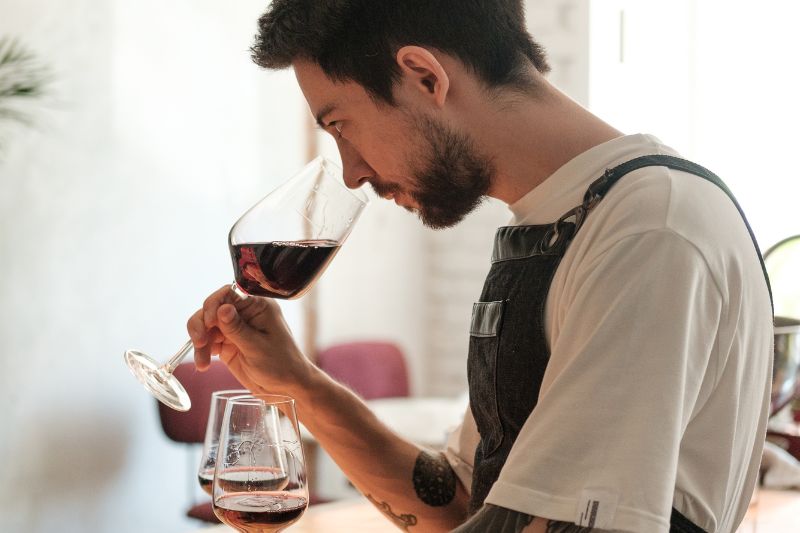Italy's travel landscape is experiencing a profound transformation. Slow travel and deep cultural immersion have emerged as the dominant trends shaping how visitors experience the country. Gone are the days of rushed tours and superficial sightseeing. Today's travellers are seeking meaningful connections with Italian culture, cuisine, and communities.
This shift is particularly significant for corporate incentive travel, where companies are discovering that authentic Italian experiences create stronger team bonds and deliver measurable benefits for employee morale and performance. The approach is clear: learning by doing rather than simply observing from the sidelines.
The rise of slow travel in Italy
Slow travel has gained tremendous momentum across Italy, with travellers prioritising longer stays and deeper cultural immersion over traditional rushed itineraries. According to recent tourism data, there has been a noticeable decrease in demand for tours to iconic cities like Rome, Venice, and Florence, as visitors seek more authentic, off-the-beaten-path experiences.
.jpg)
This trend represents a fundamental shift in how people approach travel to Italy. Rather than attempting to see everything in a week, modern travellers are choosing to spend extended periods in specific regions, allowing them to truly understand local customs, participate in traditional activities, and form genuine connections with Italian communities.
What defines slow travel in Italy
Slow travel in Italy encompasses several key characteristics that distinguish it from conventional tourism:
Extended stays in single locations allow travellers to move beyond surface-level observations. Instead of rushing between cities, visitors are choosing to spend weeks in places like Tuscany, Umbria, or the Amalfi Coast, giving them time to develop routines, discover hidden gems, and build relationships with locals. The emphasis on authentic local experiences over tourist attractions has become a defining feature. This includes participating in traditional crafts workshops, attending local festivals, learning regional cooking techniques from Italian chefs, and engaging with artisans in their workshops.
Sustainable and mindful travel practices are integral to this approach. Slow travellers choose locally-owned accommodations, support small businesses, and prioritise experiences that benefit local communities rather than contributing to overtourism in popular destinations.
Cultural immersion as the new slow-travel standard
Deep cultural immersion has become the gold standard for meaningful travel experiences in Italy. This approach goes far beyond traditional guided tours, instead focusing on hands-on learning and genuine participation in Italian daily life. The learning-by-doing philosophy is transforming how visitors engage with Italian culture. Rather than simply observing from the outside, travellers are actively participating in traditional activities, learning authentic skills, and contributing to local communities during their stay.
Authentic travel experiences that create lasting bonds
The most successful cultural immersion experiences in Italy share several common elements that create profound connections between visitors and the local culture:
Culinary workshops with local chefs provide intimate insights into regional traditions. These experiences involve learning family recipes passed down through generations, understanding the cultural significance of different ingredients, and participating in the entire cooking process from market shopping to shared meals.
.jpg)
Artisan workshops offer opportunities to learn traditional Italian crafts such as pottery making in Tuscany, glassblowing in Murano, or leather crafting in Florence. These experiences provide participants with tangible skills and create deep appreciation for Italian artistic traditions.
Agricultural experiences, including grape harvesting in Chianti, olive oil production in Umbria, or cheese making in Emilia-Romagna, connect visitors with the land and the agricultural heritage that forms the foundation of Italian culture.
Corporate incentive travel embracing Italian authenticity
These travel trends are particularly significant for companies seeking effective corporate incentive travel experiences. Authentic Italian experiences offer unique advantages for team building and employee motivation that traditional corporate events simply cannot match. The shift towards slow travel and cultural immersion in corporate settings reflects a broader understanding that meaningful shared experiences create stronger professional relationships and improve overall team dynamics.
Why authentic incentive travel experiences boost team morale
Corporate teams participating in authentic Italian experiences report significantly higher levels of satisfaction and engagement compared to traditional incentive travel programmes. The reasons for this success are both practical and psychological:
Shared learning experiences create natural bonding opportunities that break down professional hierarchies. When colleagues work together to master pasta-making techniques or collaborate on a traditional craft project, they develop new perspectives on each other's strengths and personalities.
The challenge of navigating unfamiliar cultural situations together builds trust and communication skills. Teams that successfully coordinate to participate in local festivals, learn Italian phrases, or work with local artisans develop enhanced collaboration abilities that transfer directly to workplace situations.
The memorable nature of these experiences creates lasting positive associations with both the company and colleagues. Research shows that employees who participate in meaningful incentive travel experiences demonstrate higher levels of job satisfaction and company loyalty for months after their return.
Team building through Italian cultural experiences
Italian cultural immersion provides exceptional team-building opportunities that address multiple aspects of professional development simultaneously:
Cooking classes designed for corporate groups emphasise collaboration, communication, and collective problem-solving. Teams must coordinate their efforts to prepare complex multi-course meals, requiring clear communication, task delegation, and mutual support.
Wine-making workshops and vineyard experiences create opportunities for teams to work together on long-term projects. The process of understanding wine production, from grape selection to bottling, mirrors many aspects of project management and strategic planning.
Traditional craft workshops, such as ceramics or mosaic creation, require teams to combine individual creativity with collective vision. These experiences highlight the importance of both personal contribution and group cohesion in achieving successful outcomes.
.jpg)
The learning-by-doing approach in practice
The most effective Italian cultural immersion experiences are built around active participation rather than passive observation. This hands-on learning approach creates deeper understanding and more meaningful connections between participants and Italian culture. Companies are discovering that employees who participate in learning-by-doing experiences in Italy return with enhanced creativity, improved problem-solving abilities, and stronger interpersonal skills that benefit their professional performance.
From observation to participation
The transition from traditional tourism to participatory cultural experiences represents a fundamental shift in how corporate groups engage with Italian destinations:
Traditional cooking experiences with local chefs provide teams with practical skills while offering insights into Italian family dynamics, regional traditions, and the importance of craftsmanship in Italian culture. These experiences often include visits to local markets, interactions with suppliers, and understanding of seasonal ingredients.
Artisan workshops allow corporate groups to learn traditional techniques while creating personal mementos of their experience. Whether crafting leather goods in Florence, creating ceramics in Deruta, or learning fresco painting techniques, these activities provide tangible results that serve as lasting reminders of the team experience.
Agricultural experiences, particularly during harvest seasons, offer teams opportunities to contribute to authentic Italian agricultural traditions. These experiences provide physical challenges, require coordination and teamwork, and create understanding of the hard work and dedication that characterises Italian agricultural heritage.
Measuring the impact on team performance
Companies implementing authentic Italian cultural immersion experiences for their teams report measurable improvements in various aspects of team performance:
Communication skills show marked improvement following experiences that require teams to navigate language barriers, coordinate complex activities, and adapt to unfamiliar cultural norms. These challenges create natural opportunities for developing clearer communication strategies and enhanced listening skills.
Problem-solving abilities are enhanced through experiences that require creative thinking and adaptation. Whether adjusting recipes based on available ingredients, modifying craft techniques to accommodate different skill levels, or coordinating group activities in unfamiliar environments, teams develop enhanced flexibility and resourcefulness.
The collaborative skills developed through shared cultural experiences translate directly to workplace effectiveness. Teams that successfully coordinate to participate in complex cultural activities demonstrate improved ability to manage workplace projects, delegate responsibilities, and support colleagues.
The future of Italian corporate travel experiences
As slow travel and cultural immersion continue to dominate Italy's tourism landscape, corporate incentive travel is evolving to embrace these trends more fully. Companies are recognising that authentic experiences provide superior return on investment compared to traditional corporate events. The emphasis on learning-by-doing is reshaping how businesses approach team development and employee rewards. Rather than viewing incentive travel as a simple perk, companies are leveraging Italian cultural experiences as strategic tools for team building and professional development.
The success of these programmes depends on partnering with local experts who can provide authentic access to Italian traditions, crafts, and communities. The most effective corporate programmes combine professional facilitation with genuine cultural immersion, creating experiences that benefit both participants and local communities. As this trend continues to grow, we can expect to see more sophisticated integration of cultural learning with professional development objectives, creating incentive travel experiences that deliver lasting value for both employees and organisations.



